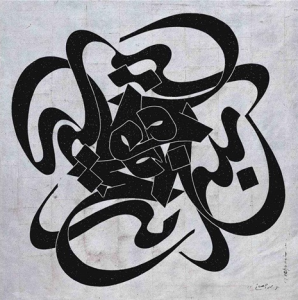Using Social Media and Technology Responsibly
By: Shaykh-ul-Hadīth, Hadrat Mawlānā Muhammad Saleem Dhorat hafizahullāh
A key feature of the era we live in is the rapid development of technology and the continuous impact this has on our lives, both in terms of the way we live and how we spend our time. As Muslims we understand that the purpose of our life
is to acquire the pleasure of Allāh ta‘ālā, by spending each moment of our life in accordance with His commands. As Allāhta‘ālā is the All Knowing, He was completely aware of all material and technological developments that
His servants would witness when He revealed the Glorious Qur’ā
n and showed us its practical application through the blessed life of Rasūlullāh sallallāhu ‘alayhi wasallam. Therefore, Alhamdulillāh, Allāhta‘ālā has equipped the ‘Ulamā until the last day with the tools to guide the Ummah on how it should use any new developments, whilst not forgetting its ultimate objective.
A significant phenomenon of our time is the emergence and widespread use of the internet and smartphones which has led to new methods of communication, such as social media and email. Whilst social media and email has led to a revival of reading and writing, often the content and quality is highly questionable. Therefore, one must be mindful not to fall prey to the harmful aspects of these mediums, for example using them to engage in, or even publicise, acts of disobedience to Allāhta‘ālā.
My objective is to outline some guidance for those who use the internet and smartphones, specifically in relation to messaging, email and using social media applications such as WhatsApp and Facebook. By sharing with readers some essential Islāmic teachings in this regard, inshā’allāh, we will be able to use technology productively, safeguarding ourselves from harmful activities.
Forwarding Messages Requires Precaution
A common trend upon receiving a message is the thoughtless and endemic usage of the ‘forward’ button. Messages are instantly forwarded to others, without proper understanding of its content nor consideration for the recipients. Many messages received are vague in nature; the truth behind them being seldom known. To spread a message without substantiating its content is very detrimental and could lead to sin, as to forward a lie is to spread a lie and be in support of it. Messages should never be shared until the content is verified and authenticated. False news or incorrect information regarding any matter can cause others unnecessary worry and concern, and will be tantamount to spreading a lie. Our Nabī sallallāhu ‘alayhi wasallam said:
To narrate whatever one hears is enough for an individual to be considered a liar. (Muslim)
More Precaution for ‘Islāmic’ Messages
Messages of an Islāmic nature demand even more precaution. Verses of the Glorious Qur’ān and ahādīth of our beloved Nabī sallallāhu ‘alayhi wasallam with their translations are often carelessly miswritten or many times are sheer falsehood; yet are haphazardly forwarded and shared on social media. Messages promising fabricated virtues for baseless actions are shared with a caption to forward to as many as possible. At times emotional blackmail and false threats are also included, ‘if you do not forward this message to at least x amount of people then such and such shall happen to you’, naturally all such messages are a complete sham. Our Nabī sallallāhu ‘alayhi wasallam warned us:
Whosoever speaks about the Qur’ān without knowledge should take his place in the Fire. (At-Tirmidhī)
In another hadīth he sallallāhu ‘alayhi wasallam mentions:
A lie against me is not similar to a lie against any (normal) individual; whosoever lies regarding me should take his place in the Fire. (Al-Bukhārī)
One should be precautious when forwarding messages with seemingly Islāmic teachings without being completely sure of their authenticity or else such grave warnings await us. Once authenticated, messages maybe thoughtfully shared.
Permission to Share?
At times, messages are of a personal nature; information or news regarding a certain individual or institution or even a country. One should contemplate before forwarding whether the sender or those whom the information is regarding would consent for the details to be shared with others? Has specific permission been granted to forward and spread the message? If not, then it would be totally unethical and in many cases a sin to do so.
A Beneficial Message?
If we stand back and objectively reflect, we will conclude that a large percentage of emails and messages received on social media applications are of a futile nature. Our Dīn encourages engagement in prosperous activities and to avoid spending invaluable time and energy on any endeavours which are of no avail or in some instances harmful. Our beloved Nabīsallallāhu ‘alayhi wasallam said:
It is from the excellence of an individual’s Islām that he leaves Lā ya‘nī (those things which do not benefit him). (Abū Dāwūd)
The Islāmic teaching regarding futility is eloquently set out in the hadīth above. One must contemplate before writing or forwarding any message, “Is it of any benefit in this world or the hereafter?” If the conclusion is negative, then this is a futile action which every Muslim should abstain from. Furthermore, sending or forwarding messages of such a nature may become the cause of others engaging in futility as well. Futility is in essence a waste of time and energy. Whilst one may ask what is the harm if a futile action is mubāh (permitted); it is akin to receiving a gift of £100 and thereafter throwing it down the gutter. Any reasonable person would be shocked and amazed at such an action, as whilst no apparent harm was suffered, the benefit that should have been achieved wasn’t and so in reality there has been a loss. Futility also brings one to the boundary of sin and therefore it is best to avoid, as it can easily lead to disobedience directly or indirectly through other actions which may follow. May Allāh ta‘ālā save us.
A Clear Message?
If all the above guidelines are dutifully met, then one should finally consider whether a message will cause any misunderstanding or misconception amongst those who receive it? After all it is an Islāmic principle and also a general etiquette of life, to always consider whether sharing information has the potential to cause a misunderstanding. Ibn Mas‘ūdradhiyallāhu ‘anhu mentions:
Whenever you speak to people regarding something which is beyond their intellect, it will surely be a means of fitnah (tribulation) for some of them. (Muslim)
If one is unsure or even has the slightest doubt whether a certain message could cause a misunderstanding, then it should not be shared. We should be extremely careful and considerate in this regard, as this will bring peace and comfort to all.
Recording or Taking Photos without Permission
The use of technology to record private conversations of people without their permission is against the teachings of Islām. A person is generally informal when in private with one’s close associates and generally the topics discussed are within a specific context and with the relevant background known to those present. If excerpts from such conversations are shared, it can become the means of causing immense misunderstanding and result in serious consequences. One should respect the privacy of others when in private environments and only record their voices when clear permission is granted. The same principle applies to taking photography or video filming at a private or an informal gathering.
Photography & Video Filming: Respecting the View of Others
It is widely known that there is a difference of opinion amongst the ‘Ulamā regarding video filming and photography; some adopt the view of permissibility whilst others take a precautious stance. To make a video of or to take a picture of someone who holds the latter view is extremely unfair and discourteous. This is tantamount to open disrespect for the personal view of that individual and gravely inconsiderate.
I would appeal to my readers to pay due attention to the etiquettes mentioned above in relation to certain aspects of using technology and bring them into practice. May Allāh ta‘ālā grant us all the understanding of our beautiful religion and its all-encompassing teachings of pure and considerate morals and ethics. Āmīn.
© Riyādul Jannah (Vol. 25 No. 2, Feb 2016)



 An essential part of every Muslim child’s life!
An essential part of every Muslim child’s life!

 إِنَّا أَنزَلْنَاهُ قُرْآنًا عَرَبِيًّا لَّعَلَّكُمْ تَعْقِلُونَ
إِنَّا أَنزَلْنَاهُ قُرْآنًا عَرَبِيًّا لَّعَلَّكُمْ تَعْقِلُونَ










